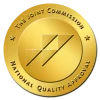Treatment for Schizophrenia
Treatment for Schizophrenia near Wilmington, NC
Schizophrenia is a severe and often debilitating brain and behavior disorder. It affects key systems in the brain and can alter how one thinks, feels, and acts. Individuals with schizophrenia or schizoaffective disorder may have difficulty distinguishing reality from fantasy. They may also struggle to express and manage emotions. Oftentimes, this chronic mental disorder can make it seem as if a person has lost touch with reality. Although schizophrenia is not as common as other mental disorders, the symptoms can be quite disabling.
At Carolina Dunes Behavioral Health, inpatient care for schizophrenia involves providing intensive treatment and support for individuals who are experiencing acute symptoms of the disorder and require a higher level of care than can be provided on an outpatient basis.

What Causes Schizophrenia, and When Does it Develop?
Schizophrenia is a rare mental health condition, affecting only about 1 percent of the adult population in the United States. The causes of schizophrenia remain unknown, but it has been determined to be a brain disease potentially affected by a mix of genetic, brain chemistry, and environmental factors.
Although the cause of schizophrenia is not known, certain risk factors seem to make the disease more likely:
- A family history of schizophrenia
- Traumatic or stressful life experiences, such as living in poverty or danger
- Certain pregnancy and birth issues, such as not getting enough nutrition before or after birth, low birth weight, or exposure to toxins or viruses before birth
- Taking mind-altering drugs as a teen or young adult
Men who develop schizophrenia usually experience symptoms as early as their teens or early 20s. The age of onset for women is a little later, in their 20s or 30s. It is very rare for children younger than 12 to develop symptoms or for adults older than 40 to have symptoms for the first time.
What are the Warning Signs of Schizophrenia?
Warning signs and symptoms of schizophrenia are different for everyone, and they may develop slowly over a period of years or quickly over a period of months or weeks. Early warning signs of schizophrenia may include:
- Hearing or seeing something that isn’t there
- Feelings of being watched
- Speaking or writing in peculiar or nonsensical ways
- Feeling indifferent to a critical situation
- Deteriorating work or academic performance
- Deteriorating personal hygiene
- Withdrawing from social situations
- Responding irrationally or fearfully to a loved one
- Deteriorating sleep or concentration
- Significant weight loss or gain
If you or someone you know is experiencing these early warning signs for a period lasting longer than two weeks, seek help immediately.
What are the Symptoms of Schizophrenia?
When the disease has fully manifested, the symptoms of an acute schizophrenic episode include the following:
- Hallucinations:
- Visual: The person may see lights, objects, patterns, or people, including loved ones who have passed on. They may also struggle with distances and depth perception.
- Auditory: Voices inside the person’s head may whisper, murmur, make threats, or command them to do certain things. - Olfactory: The person might hallucinate good or bad smells or tastes, or may believe that someone is trying to poison them.
- Tactile: The person might feel the sensation of someone touching them or bugs crawling on their skin. - Delusions
- Feeling like someone is after them, trying to trick them or convey special messages through public communication.
- Believing they have a strange health issue Holding odd religious views.
- Considering themselves more famous or important than they are - Blunted emotions and lack of pleasure
- Confusion:
Which could lead to verbal communication that does not make sense. - Difficulty concentrating:
Inability to follow the plot of a television show, for example - Unusual body movements:
Repetitive movements or not moving at all for hours on end or being jumpy - Withdrawal:
No longer making plans with friends and not wanting to leave the house
It’s important to remember that someone with schizophrenia does not typically experience all symptoms all the time. The disease tends to cycle through several phases. Initially, the person might start to behave strangely, isolate themselves, or seem to talk only about certain topics. In the next phase, hallucinations, delusions, and jumbled speech start to take over. When this acute phase passes, people enter a residual phase that’s very similar to the initial phase. Symptoms are not as severe, but depression may set in as the person anticipates the next acute episode.
How is Schizophrenia Diagnosed?
If you or someone you know is experiencing warning signs or symptoms for a period lasting longer than two weeks, seek help immediately. At Carolina Dunes, we provide our patients with a thorough medical and psychiatric assessment to evaluate symptoms and reach a diagnosis.
We’ll ask questions and may do some imaging, blood, or brain activity tests to rule out other potential causes of your symptoms. A schizophrenia diagnosis requires that the patient exhibit at least two of the main symptoms for at least one month and that these symptoms impact the person’s ability to work or maintain relationships.
Once a diagnosis is determined, treatment will begin.

Schizophrenia Treatment in North Carolina
Inpatient care typically involves an assessment and admission at Carolina Dunes Behavioral Health, where the individual can receive 24-hour monitoring and care from our team of healthcare professionals. The goal of inpatient care is to stabilize the individual’s symptoms, provide a safe and supportive environment, and develop a comprehensive treatment plan that can be continued on an outpatient basis.
Inpatient care for schizophrenia is typically reserved for individuals who are experiencing severe symptoms or who are at risk of harming themselves or others. The length of stay in an inpatient facility can vary depending on the individual’s needs but is generally shorter than in the past due to advances in medication and other treatments that have made it possible to manage symptoms more effectively in an outpatient setting.
During inpatient care for schizophrenia, the patient may receive a combination of the following treatment modalities and supportive interventions to help manage symptoms and improve their overall functioning, allowing them to reintegrate into their community.
- Medication therapy – our psychiatrist will work the client to determine the best combination and dosage of medications and monitor for side effects
Individual therapy – cognitive behavioral therapy (CBT) may be used in combination with other modalities of talk therapy to help the client manage their thoughts and behaviors - Psychoeducation – we help clients understand their symptoms and challenges and how to use their strengths to manage their disorder
- Life skills training – we help clients commit to cultivating personal hygiene and healthy living spaces
- Recreational therapy – we use games, crafts, and other activities to help clients develop social skills and improve cognitive and physical abilities
- Family therapy and education – the family will play a crucial role in a patient’s recovery, and we encourage family members to engage in therapy and to learn skills for helping their loved ones manage their illness
- Vocational services – we work with clients to help them meet their goals of going to school, getting a job, or volunteering in the community
